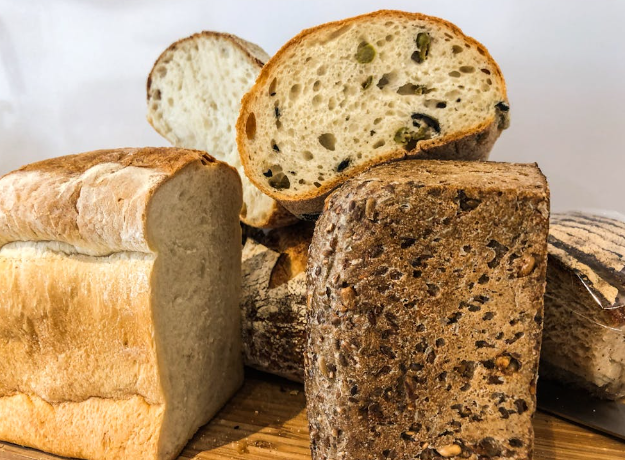Edible oil firms: Why you’ll pay more for bread
By Mercy.Mwai, May 30, 2024Kenyans should brace for tough times ahead as the cost of basic commodities is set to increase if MPs pass the 2024 Finance Bill, which contains proposals to increase excise duty on edible oils.
Among the commodities whose prices will rise under proposed taxes are bread (400g), whose cost will rise from Sh70 to Sh80; long bars of soap from Sh180 to Sh270; and chapati and mandazi, which are made with edible oils and.
Others are chips, which will increase by Sh20 to retail at Sh100 from Sh80; 200g biscuits, which will retail at Sh150, up from Sh120; 40g crisps, from Sh50 to Sh70; 250g margarine, which will increase by Sh150 from Sh160 to Sh300.
Documents tabled before MPs by 13 manufacturers of edible oils also show that the cost of palm oil that lands in Kenya at $930 per barrel will also go up to retail at Sh6,737 for a 20-litre jerrican, up from Sh4,046, while the cost of a 10kg carton cooking fat will increase by Sh1,098 to retail at Sh3,230 from Sh2,132.
Palm oil
The cost of palm oil per litre for consumers will increase from Sh202 to Sh337, while the price of cooking fat per litre will sell for Sh162 from Sh107.
The proposed taxes will make it hard for a family of four people to have a full meal a day while others will have to cut down to one meal every two days, edible oil manufacturers chairperson Fathi Hayel Saeed and Bidco Oil Refineries managing director Vimal Shah warned members of the National Assembly’s Trade, Industry and Cooperatives committee.
The National Treasury wants to increase excise duty by 25 percent, reintroduce excise duty on plastic packaging at 10 percent, and introduce an eco levy of Sh150 per kilogram that aims to promote responsible waste management.
Said Saeed: “Consumers are already constrained by increased taxes such as the housing levy and Social Health Insurance Fund (SHIF). Minimum wage is approximately Sh18,000 gross.
“With an increase in rents and the cost of basic daily consumables such as bread, mandazis and chapatis, a family of four will struggle to have a full meal a day.”
Shah added: “For the government to put excise duty on edible oils so that we can promote local manufacturing is not true. You increase excise duty, you will kill the local manufacturer because the same taxes will apply to them.
“With this, we will now allow more imports into the country. Our questions to you members is, why are we destroying our very own with one stroke of the pen.”
Hospitality and tourism
Consumers will suffer as they have to bear the cost implications of such taxes, Saeed told MPs.
The proposed taxes, he added, will also have an impact on the hospitality and tourism sectors as edible oils constitute a substantial cost in the preparation of food and delicacies for the hotel and catering industries.
He said: “This increase in cost will increase the cost of hospitality and have a significant impact on our tourism industry.”
He urged the committee to the repeal the proposed excise duty on edible oils and margarines and remove the Import Declaration Fee (IDF) and the Railway Development Levy (RDL), which are levied on crude oil imports.
Saeed also wanted the Nuts and Oil Crop Directorate (NOCD) levy of two percent to be removed, arguing that his will bring a net saving of Sh50 per 20-litre jerrican.
He also said that removing the East African Community duty that makes it impossible for edible oil manufacturers to import within the region will lead to a Sh70 saving for a 20-litre jerrican in the local market.
Saeed said: “Remove the various proposals in the Finance Bill 2024/2025 as these will have greater implications on the cost of cooking oil in Kenya.”
Coast of doing business
Shah claimed that the cost of doing business in Kenya is way higher than in Tanzania or Uganda, where edible oil manufacturers are not only allowed to invest but also given incentives to set up their businesses and plants.
On controlling plastic use, he explained that the government’s proposal to ban plastics as packaging containers will not work as it is more expensive to pack cooking oil in tin or glass containers or dispense it from such containers, due to hygiene standards.
He said: “Glass is three to four times expensive. Recycling it is even very expensive. You want to bring down the cost of living, then there is no other cheaper solution than plastics.
“If you want to control the use of plastic, pass a law prohibiting residents from disposing of said plastics in our environment.”
He added: “We cannot jump from one policy to another …. We cannot move from plastics to these other methods in one day. Rome was also not built in one day.
“This is my take on packaging – that we must engage as stakeholders and agree on it.”
Pwani Oils and Kartasi brands managing director Rajan Maide rejected claims that edible oil makers had blocked competing entities from setting up businesses in Kenya.
He said they can only diversify the raw materials they use by planting sunflower if the government agrees to provide land where they can do so.
He also disputed claims that some of their goods are substandard because they do not contain the vitamin A component, saying the products are tested and verified by the Kenya Bureau of Standards.
